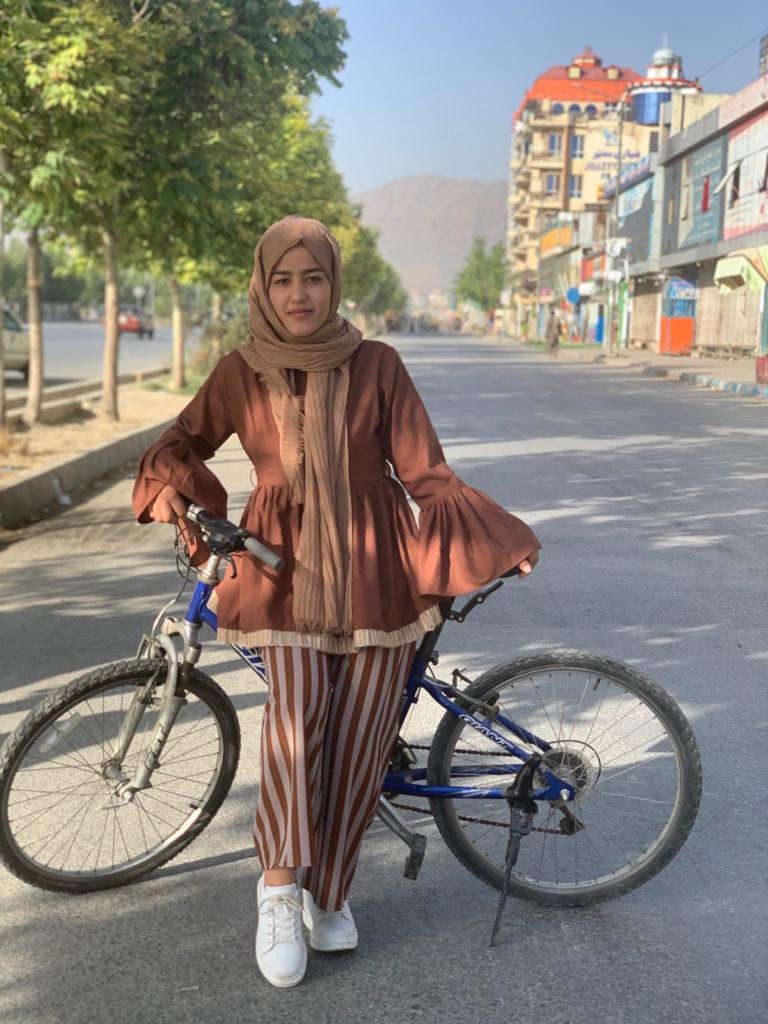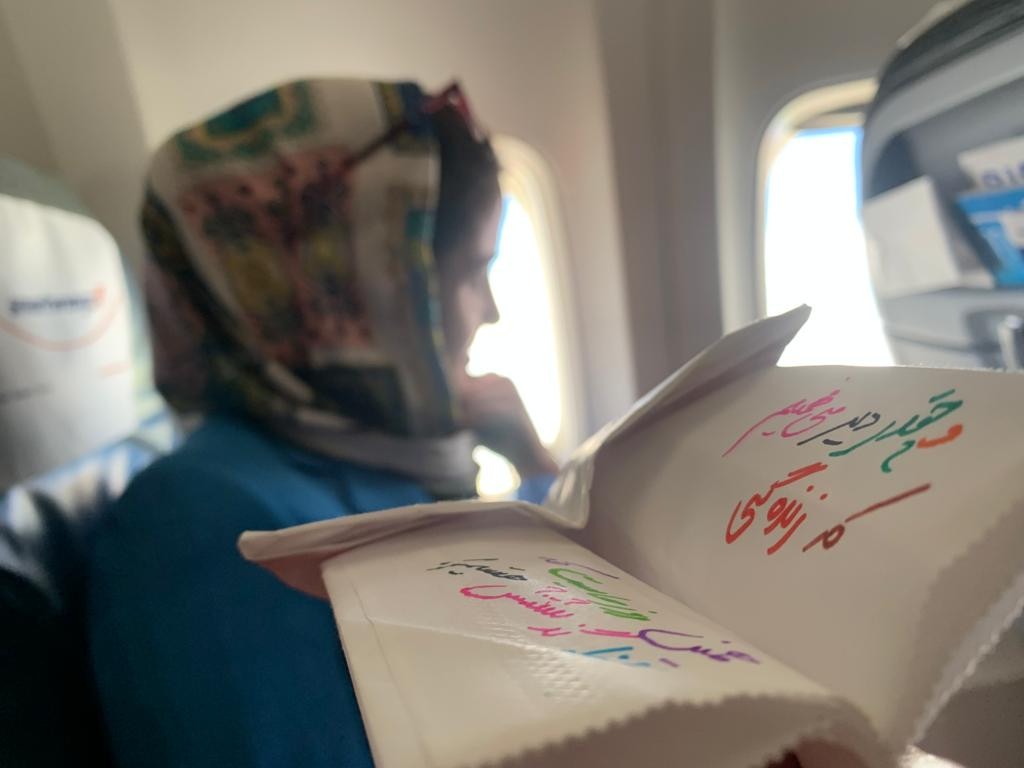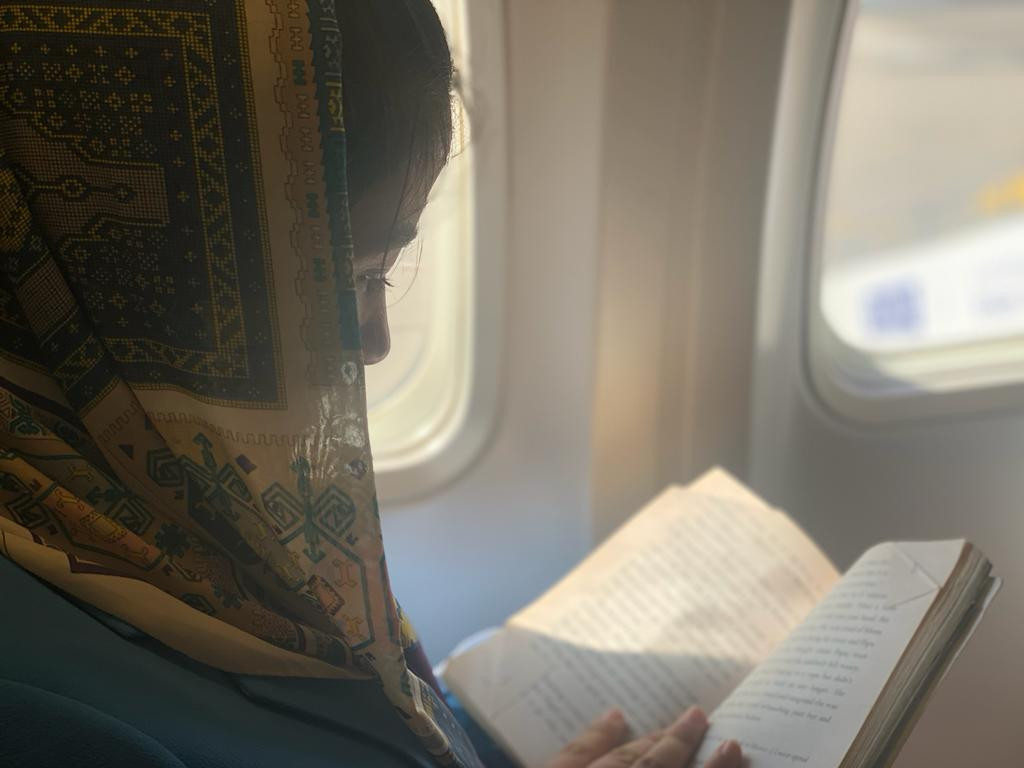It has been two years since the fall of Afghanistan's capital, Kabul, when the Taliban took control on August 15. It is also two years since Kabul became a place where dreams die for cyclists and athletes like Zahra Abbasi.
“To be a woman means being a second-class citizen under the Taliban rule,” Abbasi explains, much like several other Afghan women here in Berlin, who participated in the Discover Football festival that started on August 12 with a two-day symposium on the Unseen Game being the theme this year. It followed the tournament that had players, referees, and coaches along with experts representing more than 15 countries, including Afghanistan, Pakistan, Iran, Iraq, Palestine, Ukraine, Georgia, Turkey, India, South Sudan, Gambia, South Africa, Kenya, Colombia, Argentina, Uganda.
The festival highlighted issues around governing sports federations, and socio-political issues that force women’s games to be invisible in different countries. Due to its inclusive nature, the festival works as a haven for women and other minority groups.
Like the Afghanistan women’s football team captain Khalida Popal, Abbasi has been among the women telling the stories of Afghan women.
1696752522-0/WhatsApp-Image-2023-10-07-at-6-57-53-PM-(1)1696752522-0.jpeg)
Abbasi and her sister Manizha had been working as social media managers for the event, but their stories were similar to those of the participants of the tournament in Berlin. They endured oppression and fled their homes, alone in many instances. Only to live a life where playing a sport, going to school, working as a journalist or something as simple as wearing a lipstick or a pair of high-heeled shoes is not a grave sin that would get them punished for good. They left their loved ones behind without knowing when they would see them again, and escaped the prison that Afghanistan had become for them.
Fleeing the country was the only way for her and her family to survive like many others who wanted to live a modern life with simple rights where they were allowed to dream of becoming anything other than a doctor or a teacher.
“I was training to be a part of the Afghanistan cycling team when everything ended for girls like me," says Abbasi. “It has been one of my dreams to cycle for my country because for us women it has always been so difficult to exercise basic rights for something like cycling. I only began riding a bicycle to go to school an get back to save money on transportation. But it was so hard to do that because our society never allowed us to do it even before the Taliban took over the country.”

In the years preceding the Taliban take-over, they had to work on opening the minds of their families, relatives, and friends. “But now we are back to square one,” says Abbasi. “I was the first girl to start riding a bicycle in my neighbourhood of Dalamar Street. After they saw me ride a bicycle, my teachers also started to cycle to school after seeing how beneficial it was. In a year’s time, I saw so many people take up cycling, it was a beautiful thing that we shared as a community. At that point I realised I was part of something bigger than myself.”
Abbasi has four siblings. Her inspiration comes from her eldest sister Manizha, 23, who became the first girl from their family to play sports and work as a female journalist in a strongly patriarchal society.
Nineteen-year-old Abbasi explained that growing up in Kabul was a challenge with limited choices, which was still a more progressive city in comparison to others.
“In Afghanistan, women are only allowed to become doctors or teachers,” she says. “As most women are not allowed to get treatment from male doctors, women are encouraged to study medicine, while teaching is also considered to be a respectful profession.”
1696752523-2/WhatsApp-Image-2023-10-07-at-6-57-54-PM-(1)1696752523-2.jpeg)
Her elder sister Manizha wanted to be a basketball player, but their family didn’t allow her to be one, and she became a sports journalist. “Thanks to her efforts and constant questioning of traditions, our father allowed me to cycle and go to the national trials because our parents changed their mindset,” says Abbasi, who also thought earlier that cycling was only for males.”
While studying to become a doctor, like most students who scored good grades in Kankur examination of the higher education board of Afghanistan, Abbasi was gradually consumed by the idea of getting a scholarship in India, Japan or Turkey
“I was a bookworm,” she says. “I would study hard to get good grades and improve my life. I would even study in the bathroom. When the pandemic hit the world and everything became slow, I started reading stuff besides my course books. This opened my mind up, and I realised that I could be something other than a doctor, maybe pursue a career in sports, and I loved training as a cyclist.”

Adopting cycling was a lifestyle change at first, but later, being on the national team became her ambition.
“I finally got the opportunity to address the questions about the dichotomies of our culture,” she says. “I wanted to ride the bicycle so badly that when it was announced at my school that the top prize for the top three students was a computer, I thought if I won, I could sell it to buy a bicycle.
“I studied hard, got the top position, won my computer, and then sold it,” she says with an excitement in her voice. With the money, I bought a bicycle and a phone, and that was the beginning of my journey.”
Abbasi learned to ride a bicycle in her teens unlike most children in other countries who learn cycling quite early in life.
Her younger brother, a musician, helped her to learn cycling. “My brother and I used to go out after Fajr prayers and he would teach me how to ride a bicycle,” she recalls. “We didn’t want others to make fun of me because men do look differently at women who are not veiled. When they saw me riding a bicycle, they would call out names and obscenities, it was hard to bear it all. I learned how to ride a bicycle in grade 10 as a reaction to a very oppressive society that told us what we can and cannot do based on our gender.”
Abbasi said that for the longest time, both siblings tried to learn cycling, but couldn’t succeed until her father came into the picture.

“Getting my father’s support was huge,” she says. “I felt validated in my quest and it took only a day of his guidance that I started to ride the bicycle properly. It felt so good to a girl living in a society where we are not encouraged to do what I was doing. That support made me feel like I could do anything,” explains Zahra, who is also a multi-medium artist making short films, from script to photography. She also sculpts different materials to express the woes and suffering of Afghan women.
Once she learned how to cycle, life became easier. “We saved money on conveyance and I became physically fitter,” she says. “It was around that time that Manizha suggested I should take cycling up as a sport.”
“I began training and thanks to Manizha I even got an opportunity to get to the trials,” recounts Abbasi. “Manizha has changed our lives, and as the eldest daughter, she has really done a lot for our family. As she had been covering sports, she made friends everywhere and through them she found out that the cycling federation was taking trials, so I decided to go for them.”
Her first step to become a professional cyclist was to join the national team, albeit under-18, but it meant that she could continue her dream to be at the Olympics one day.
Since there are not many women cyclists in Afghanistan, getting to the trials was not that difficult for Abbasi.
“It’s an activity that was literally perceived as haram,” she says. “But the officials told me that in Afghanistan being courageous is a bigger deal than having talent. So, I thought even if I am not talented, I can still be brave and ride the bicycle to the best of my ability and win for my country.”
Three cyclists were selected in those trials, and Abbasi was one of them. Shortly after, the Taliban took over, Abbasi recounts with a sadness in her voice. Young women like her want peace in their home country. Living like refugees and immigrants is only a short-term solution because women back home are still suffering. Also living as refugees and migrants is not without challenges.
With the help of a friend abroad who arranged for the cyclists to flee Kabul early in the morning, Abbasi fled from Kabul. She crossed the Afghan-Pakistan border and stayed in Islamabad for eight months before settling in Germany. She left her home and her loved ones. Her sister and brother also fled home on their own, with the help of friends, leaving behind their parents and life as they knew it in 2021. A few months later, the family reunited.
“Our father was in another city, and when the Taliban announced that they would accompany families without male guardians, we were horrified,” recalls Abbasi. “My brother was still under 18 and we were all women. They had also announced that they would marry girls over 18 in these households, which was extremely terrifying. We had no option but to flee. Just the possibility that my sisters would be taken away by the Taliban was horrible, my mother was terrified because we had no idea what would become of us.”
Talking about her time in Islamabad, she recalled that she had an option to cycle but being traumatised, she froze. She also got an opportunity to ride a bicycle in Germany, but she couldn’t. Slowly but surely, she feels she will return to the sport.
“I just couldn’t cycle anymore,” she says. “It was like something had shifted in me and I was scared to do it. My anxiety was high, with lots of terrible things associated with it, but I know I’ll overcome it.”
Abbasi came to Pakistan by road in the dead of the night, clutching a bag. “In Pakistan, girls are allowed to pursue sports in the big cities where people are more tolerant,” she says. “But in Rawalpindi, we saw that the environment is still quite conservative.”
Leaving Kabul was dangerous but the only way that ensured survival. She had already witnessed the atrocities by the Taliban who destroyed all the musical instruments in her brother’s school, and girls were prohibited from attending school.
“I yearn for my home,” says Abbasi. “Afghan women don’t want to settle anywhere even if it is a safe place. We want our home in Afghanistan to be safe for us; that is our dream. Even though it is hard for me to cycle now, I want to get over my trauma and emotional wounds to restart my sports journey at some point because I know that will encourage other girls too. I am waiting for Afghanistan to be better for women again so that one day I can represent my country at the Olympic and the professional level,” concluded Abbasi as her sister walked by her side, nudging her to take pictures or to film the Discover Football festival. The two also have an art and photography exhibition at the Hogan Lovell Gallery featuring the second memorial of the fall of Kabul.
Meanwhile, Manizha admits that working as a sports journalist in Kabul was an eye-opening experience for her, a journey that she had wanted to continue but until she gets back to Kabul and be allowed to live peacefully and freely, she can lend her voice and efforts to highlight the plea of Afghan women.
“I really enjoyed being a sports journalist,” says Manizha. “I still remember covering cricket for the first time, I knew so little about the sport but my editor at the news channel told me motivated me. I covered sports and it brought so much joy to me, but later it was taken away from me. Opportunities were taken away from many women in Afghanistan, but I can continue my work because there is a cause attached to it and there are lives at stake,” says Manizha before getting back to her work.
